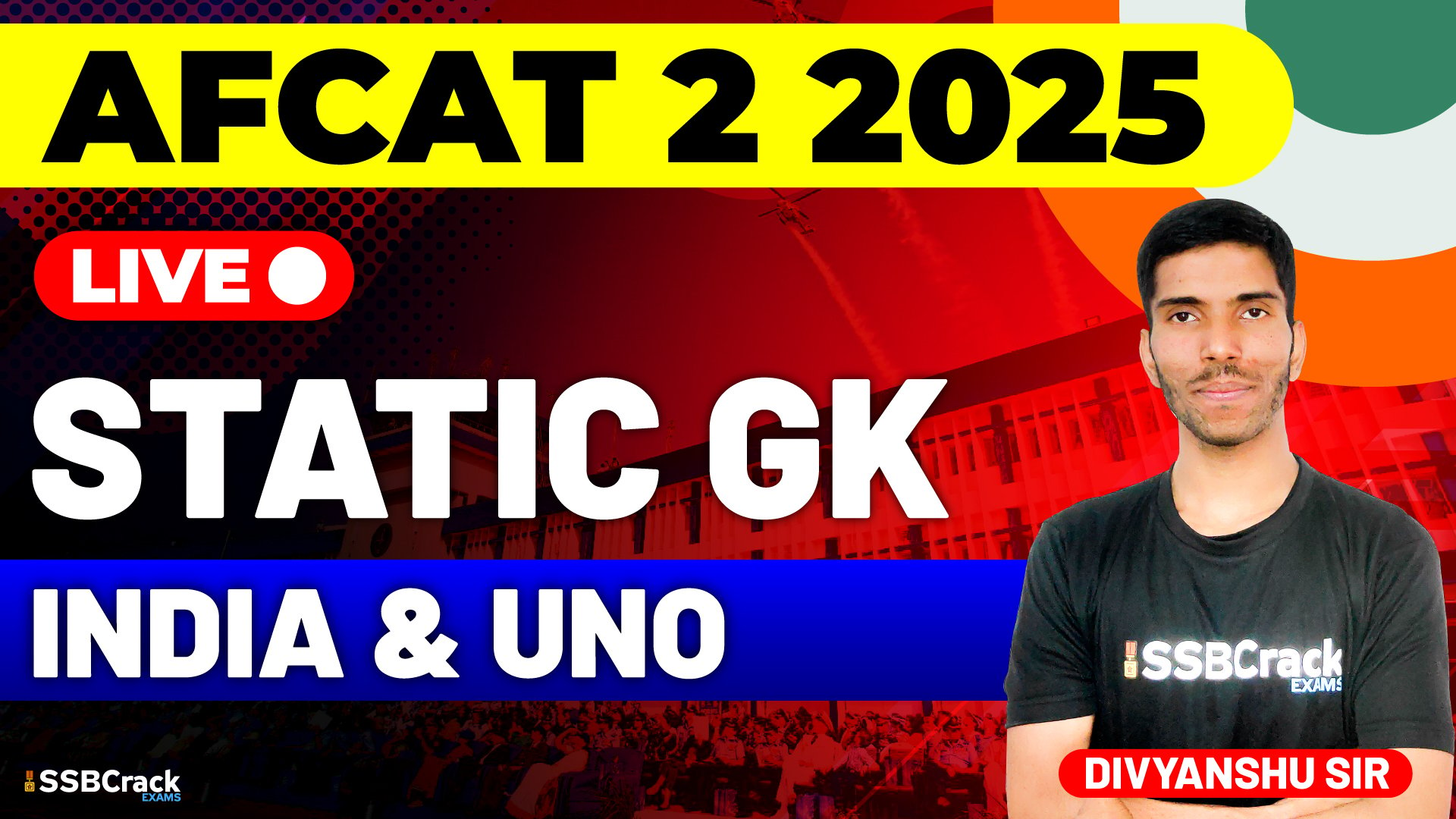For aspirants preparing for the AFCAT 2 2025 Exam, Static GK forms an essential part of the syllabus, especially topics related to India’s role in global organizations like the United Nations (UNO). Here’s a detailed article covering key facts, historical context, contributions, and India’s current engagement with the UN — a must-read for all AFCAT aspirants.
AFCAT 2 2025 Exam Static GK – India & UNO
India & The United Nations (UNO) – Overview
The United Nations (UN) was founded on 24th October 1945 after the end of World War II, with the aim to prevent future global conflicts, maintain peace, and promote cooperation in international affairs. India, although not independent at the time, was one of the original founding members of the UN due to its status as a British colony.
🏛️ India’s Role in the Formation of the UN
- India was among the 51 founding members of the United Nations.
- India signed the UN Charter in San Francisco Conference on 26 June 1945.
- Independent India has always supported multilateralism and peacekeeping missions, becoming a key contributor to the functioning and credibility of the UN.
🌐 India’s Contributions to the UN
- Peacekeeping Operations
- India is one of the largest contributors to UN Peacekeeping Forces.
- Indian troops have participated in over 50 peacekeeping missions.
- Nearly 200,000 Indian troops have served in various UN missions.
- India has deployed women peacekeepers, including the first-ever all-women Formed Police Unit (FPU) in Liberia in 2007.
- Non-Permanent Member of UNSC
- India has been elected as a non-permanent member of the United Nations Security Council (UNSC) 8 times, with the most recent term being 2021–2022.
- India has consistently advocated for reforms in the UNSC, especially for the inclusion of developing countries and permanent membership.
- Economic and Social Contributions
- India actively contributes to UNESCO, UNICEF, WHO, and UNDP.
- Indian diplomats like Shashi Tharoor have held important UN positions.
- India supports the Sustainable Development Goals (SDGs) and climate change initiatives through cooperation with UN agencies.
- UN and International Court of Justice (ICJ)
- Indian Judge Justice Dalveer Bhandari was re-elected to the International Court of Justice (ICJ) in 2017 with strong support from the UN General Assembly.
🔐 India’s Stand on Key UN Issues
- Terrorism: India has consistently urged the UN to adopt a Comprehensive Convention on International Terrorism (CCIT).
- Reforms in UN Structure: India advocates for reforms in the UN Security Council, seeking permanent membership along with countries like Brazil, Germany, and Japan under the G4 nations.
- Development Agenda: India is a strong supporter of Agenda 2030 and SDGs, emphasizing inclusive and sustainable development.
📜 Important Facts for AFCAT 2 2025
| Topic | Fact |
|---|---|
| UN Formation Date | 24 October 1945 |
| India’s Role | Founding Member |
| India’s First PM to Address UN | Jawaharlal Nehru |
| Non-Permanent UNSC Terms | 8 Times |
| Last Term | 2021–2022 |
| Major Indian UN Diplomat | Vijay Lakshmi Pandit (1st woman President of UNGA in 1953) |
| ICJ Indian Judge | Justice Dalveer Bhandari |
| India’s UN Peacekeeping Contribution | 2nd largest troop contributor |
| G4 Nations | India, Germany, Brazil, Japan |
📌 Conclusion
India has been a vocal, active, and constructive member of the United Nations since its inception. Whether it is in peacekeeping, reforming global governance, or supporting development goals, India’s role in the UN has been consistent and commendable. For AFCAT 2 2025 aspirants, understanding this relationship helps not just in Static GK, but also in defence and international affairs sections of the exam.








